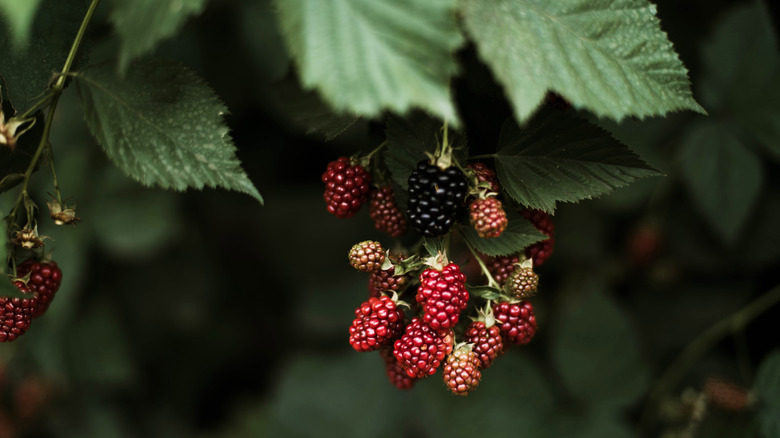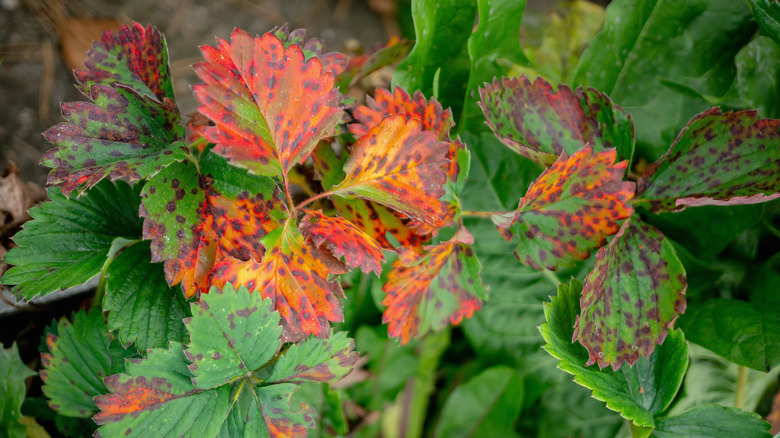The Plant Family That Can Prove Deadly To Your Raspberry Bush
Raspberry bushes — prized for their sweet, juicy fruits — are beloved for their ability to thrive in a home garden. However, despite their hardiness, they have a major vulnerability: they can be severely affected by certain plant diseases, particularly those harbored by plants from the nightshade family.
The nightshade family (not to be confused with the toxic black nightshade plant) is a group of well-known and widely cultivated plants. The family includes tomatoes, potatoes, eggplants, and peppers. These crops are a staple in many gardens, providing a rich harvest for some gardeners. While these crops are robust, they also are common hosts of a fungus known as verticillium wilt, a persistent soil-borne disease that attacks the vascular system of plants. As frequent victims of this disease, nightshade vegetables tend to spread it easily to surrounding soil. For raspberries, this is particularly harmful, as they are highly susceptible to damage from the fungus. This is why it is crucial to avoid planting your raspberry bushes near plants in the nightshade family.
When raspberry bushes are infected, they often show symptoms like wilting, yellowing leaves, stunted growth, and poor fruit production. Ultimately this disease causes dieback, where the plant's stems and branches die off. Unfortunately, once verticillium wilt takes hold, the damage is often irreversible, and infected raspberry plants must be removed to prevent further spread.
How nightshades spread verticillium wilt
Nightshade plants contribute to the problem by being carriers of verticillium wilt. They tend to harbor the fungus in their root systems. Thus, they act as reservoirs, allowing the fungus to multiply and persist in the soil. The fungus thrives in the soil, often remaining there for years — long after the plants themselves are gone. This means that planting raspberries in an area that has previously housed nightshades, or close to them, can leave them vulnerable to infection, even after the nightshade plants are gone.
Even rotating crops within the nightshade family yearly doesn't protect against verticillium wilt. If you've grown tomatoes one year and potatoes the next, the fungi could still be lying dormant in the soil, latching onto leftover plant debris, waiting to attack any susceptible plant — such as your raspberries. Only rotating with non-host crops, those outside the nightshade family, can help in removing the fungus.
The best way you can safeguard your raspberry bushes from the deadly effects of verticillium wilt is to avoid planting your raspberries near nightshade plants or areas that have recently housed them. Intersperse your garden with plants that are good companion plants to nightshades to create some space from your raspberries. You can even incorporate some turmeric or sprinkle some cinnamon on your grass to help rid some of the fungal spores. By doing so, you reduce the risk of exposing your raspberries to verticillium wilt and help ensure a healthy, fruitful harvest.

